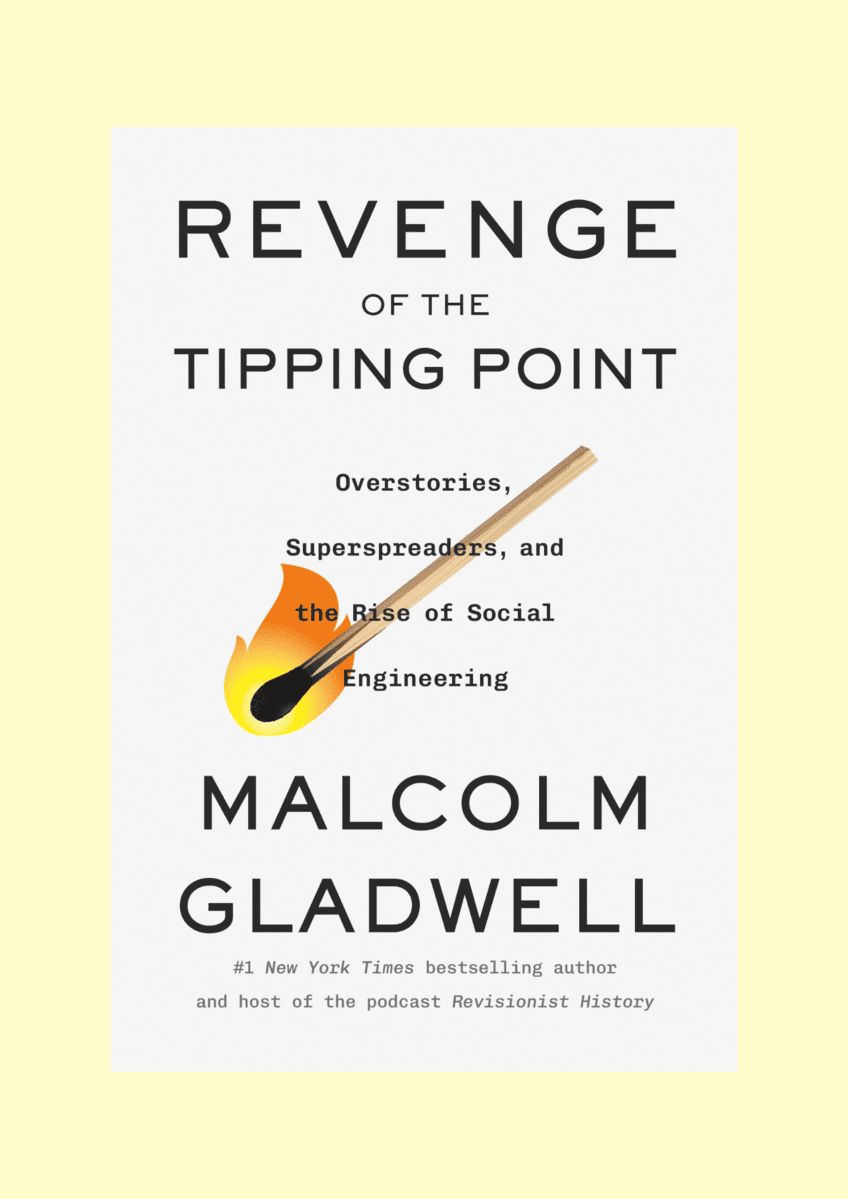Revenge of the Tipping Point: Overstories, Superspreaders, and the Rise of Social Engineering – A Comprehensive Review
1. About the Author
Malcolm Gladwell is one of the most well-known and respected authors in the field of social science and communication. As a prominent staff writer for The New Yorker and the author of multiple New York Times bestsellers, Gladwell has reshaped our understanding of social phenomena through concepts such as “The Tipping Point” and “Outliers.” In addition to his impressive writing career, he founded the podcast network Pushkin Industries and is a captivating public speaker whose talks consistently draw wide audiences.
2. About the Book
Revenge of the Tipping Point is Gladwell’s latest work, released 25 years after The Tipping Point first made waves. This time, Gladwell revisits the topic of social contagion, reasserting that the ideas he explored in his first book remain “useful,” but he also admits there is still much he doesn’t fully grasp about social epidemics. While familiar concepts such as “The Law of the Few” and “The Stickiness Factor” reappear, Gladwell introduces new ideas like “The Overstory” and “Superspreaders.”
3. Book Review
There’s no denying that Malcolm Gladwell has built a highly successful career by transforming complex social science research into digestible and engaging rules of thumb that often challenge conventional thinking. However, many critics have long accused him of cherry-picking, oversimplifying, and even distorting research to fit the narratives he wishes to tell. Gladwell has defended his approach by emphasizing that his role as a journalist is to make research accessible to a broad audience.
In Revenge of the Tipping Point, Gladwell revisits the themes of social contagion and contagion dynamics. The book asserts that the principles from The Tipping Point are still relevant, but it stops short of offering a deep reassessment of his earlier work’s impact or limitations. Instead, Gladwell doubles down on his initial ideas while adding new concepts that address today’s more complex and ethically charged social landscape.
The book acknowledges that The Tipping Point was a product of its time, the late 1990s, when corporate leaders were anxious about the internet’s disruptive potential, and technocrats who could bridge the gap between traditional business practices and the emerging digital world were highly valued. The Tipping Point celebrated the power of a select group of individuals—whom Gladwell labeled as Mavens, Connectors, and Salesmen—to exert significant influence. Yet, in today’s society, where digital natives are plentiful and technological savviness is no longer unique, the original book’s lessons may feel outdated.
While Revenge of the Tipping Point presents familiar themes, it also addresses new, pressing social issues, such as racial inequality, the opioid epidemic, and the biases embedded in elite institutions. For instance, Gladwell explores how an innovative yet controversial community in Palo Alto achieved racial integration through quotas that would be illegal today. This example highlights a key message: even seemingly simple solutions can have complex ethical implications.
Critics argue that the book suffers from the same shortcomings as Gladwell’s earlier work: anecdotal evidence is used to make sweeping claims that are not always substantiated by rigorous research. Nonetheless, the new book shows a shift in Gladwell’s tone. While The Tipping Point was morally neutral and full of wide-eyed curiosity, Revenge of the Tipping Point feels more aware of the need for ethical considerations and social responsibility.
The main dilemma in Revenge of the Tipping Point is that Gladwell’s reputation is built on the promise that small changes can have a massive impact. Yet, he now confronts the reality that these “simple tricks” may not be as effective in addressing today’s more entrenched and complex social problems. An example he highlights is California’s method of curbing the opioid crisis through stringent documentation requirements for opioid prescriptions. While Gladwell credits this as a successful intervention, critics are quick to question whether his conclusions are oversimplified or flawed.
Ultimately, the book underscores the struggle to reconcile the effectiveness of small, actionable insights with the need for broader social reforms. As society shifts towards a more critical view of technocratic solutions, Gladwell finds himself walking a fine line between promoting simple fixes and acknowledging the deeper, systemic challenges we face.
4. Who Should Read This Book?
Revenge of the Tipping Point is ideal for readers who are fascinated by social phenomena and want to understand how ideas and behaviors spread. If you were captivated by The Tipping Point or Outliers, you’ll likely enjoy seeing how Gladwell expands on his previous concepts with updated examples. However, if you prefer in-depth analysis backed by comprehensive research, you might find some of Gladwell’s arguments lacking.
The book is also valuable for professionals in marketing, communication, or fields that deal with social influence. Even if not every concept is immediately applicable, there are plenty of thought-provoking insights that can inspire fresh approaches to understanding social trends.
5. Conclusion
Revenge of the Tipping Point offers a reflective and more ethically engaged perspective compared to The Tipping Point. While the book continues to showcase Gladwell’s storytelling prowess, it raises critical questions about the impact of simple solutions in a world that demands more comprehensive changes. Whether you agree with his methods or not, the book is a thought-provoking read that encourages us to think about the power of ideas and their ripple effects on society.
6. Where to Listen to the Audiobook
You can experience Revenge of the Tipping Point as an audiobook, narrated by Malcolm Gladwell himself, to fully appreciate his engaging storytelling. Sign up for a membership on audiobooks.com or audible.com to listen to this and other captivating titles. Unlock a world of knowledge and entertainment with unlimited access to thousands of audiobooks today!










Reviews
There are no reviews yet.